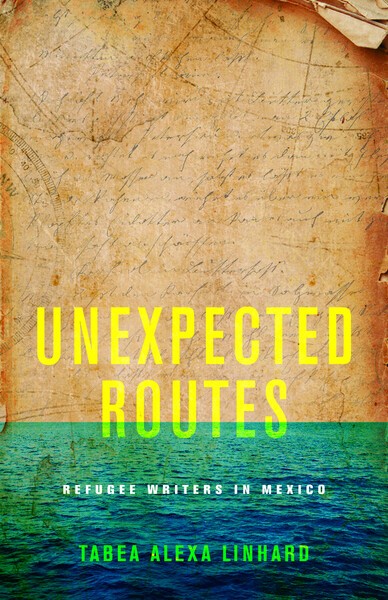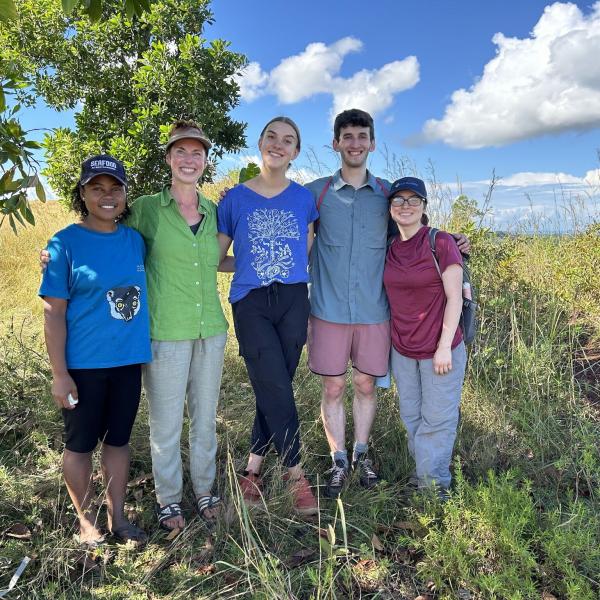Tabea Alexa Linhard’s new book details the complicated journeys of six European writers escaping fascism.

In the 1930s and ‘40s, anti-fascist writers across Europe were forced to flee their countries. Displaced by the Spanish Civil War and World War II, they took complicated, dangerous routes to find safe asylum.
In her new book, “Unexpected Routes: Refugee Writers in Mexico,” Tabea Alexa Linhard follows six refugee writers who escaped from Europe to Mexico. Linhard, director of global studies and professor of Spanish, sat down with the Ampersand to discuss the legacies of these writers, their conflicting perspectives on racism, and what’s missing from the most famous depiction of European refugees, “Casablanca.”
What sorts of hardships did these refugee writers experience, and why are their stories important today?
One of the figures I wrote about was the German writer Anna Seghers, who was Jewish and belonged to the Communist Party. She left Nazi Germany after 1933, hoping to make it from occupied France to the United States. But when Seghers’ family arrived at Ellis Island, they were told that they could not stay in America. The reason officials gave was that Seghers’ daughter had an infectious disease, but that wasn’t true. The real reason was that Seghers belonged to the Communist Party. At that point in time, there was a Mexican politician and labor leader, Vicente Lombardo Toledano, facilitating the entrance of communist intellectuals into Mexico. So, Mexico became one of the few places where writers like Seghers could find safe haven.
I did a lot of my research for this book during the so-called “refugee crisis” in 2015-2016. So, even though the book is about World War II, it's also about a different kind of refugee crisis. There are certain echoes between what is happening today and what happened in World War II. We like to tell stories about how we provide asylum to those who need it, but those stories are often untrue.
What are the legacies of these writers in Mexico today?
It is important to differentiate between the Spanish refugees who, due to the Francoist dictatorship after the war, could not return home, and those who had fled from Nazism. The former remained in Mexico and built important cultural and educational institutions. There are only a few traces of the other writers, with one important exception: Swiss-born Gertrude Duby.
Duby became a social worker in Mexico and eventually traveled to the state of Morelos to learn about the lives of women who fought in the Mexican Revolution. She later settled in Chiapas and became an advocate for the Lacandón Maya. She and her husband, the anthropologist Frans Blom, became towering figures in the region and played an important role in defending the rainforest.
What narratives exist about European refugees during World War II, and how might they be incomplete?
In the opening chapter of my book, I write about the first time I watched “Casablanca” as a child. The movie is the most well-known cultural artifact about that period, and it certainly has many layers. Many of the extras in the film were European refugees who had settled in Hollywood. But much of the film is built on Orientalist stereotypes. The film takes place in Morocco, but there are almost no Moroccans in the film.
Like “Casablanca,” the texts produced by the European writers I studied contain stereotypes about the places to which they escaped. Many of these refugees were Jewish; Their families were being deported and killed. There was so much loss and trauma. But when these people fleeing racial violence talked about parts of the world that were new to them — North Africa, the Caribbean, and Mexico — they often brought colonial stereotypes into their discourse. It becomes very contradictory.
The fact that these writers were refugees does not automatically make them heroes. Like all of us, they were complicated and flawed individuals. Once you think beyond strict and narrow categories, there's much more room for stories and experiences.



